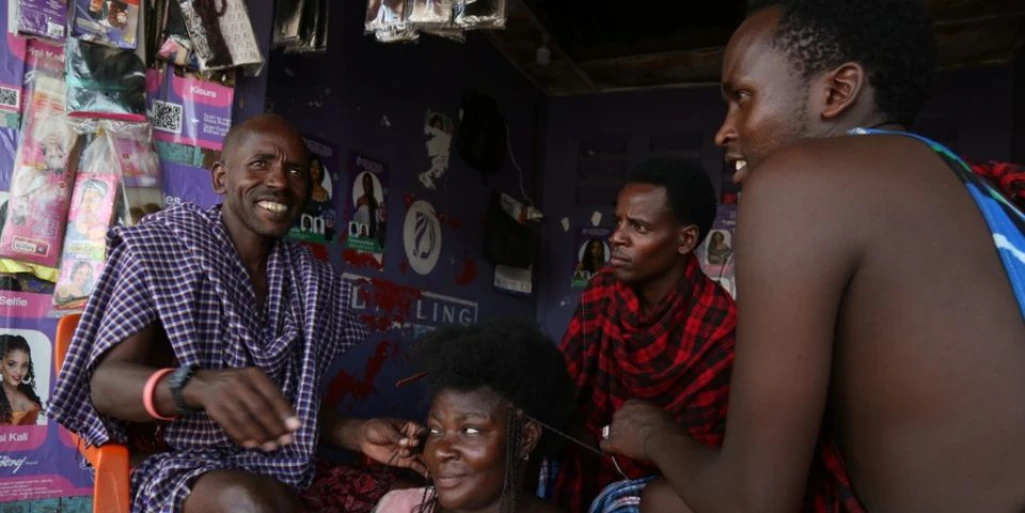
For Ray Lipasho Kimeshwa, a Maasai man who hails from the Kiteto district in Tanzania’s northern region of Manyara, climate change has left an indelible mark on his life.
“This dreadful animal called climate change forced me to migrate to the port city of Dar es Salaam to engage in the business of hairdressing in 2001,” Kimeshwa, the chairperson of a community of about 80 Maasais at Ilala-Amana in Dar es Salaam, told Xinhua in a recent interview.
Kimeshwa, who was busy organising a group of young Maasai hairdressers at their hairdressing salon called Skuvi-Msusi Express at Ilala-Boma, said he is one of the casualties of climate change after the prolonged dry spells in his Kiteto home village killed 16 of his cattle for lack of water and pasture.
“In fact, drought has forced tens of hundreds of Maasais to migrate to urban centers to do businesses like hairdressing, guarding houses and other property using traditional weapons such as clubs and machetes, and selling Maasai traditional artifacts, including leather beaded necklaces, beaded sandals, and ethnic jewelry,” said Kimeshwa, who has three wives with seven children.
According to him, his three wives and seven children are in Kiteto keeping their livestock and doing other house chores. The Maasai are a Nilotic ethnic group inhabiting northern Tanzania and central and southern Kenya.
They are among the best-known local populations internationally due to their residence near the many game parks of the African Great Lakes and their distinctive customs and dress.
He said the money they were getting from hairdressing was helping to look after their families back home.
Kimeshwa said their customers are women from all walks of life, including foreign tourists. “Some of the tourists take us to Zanzibar on fully paid trips to do the hairdressing there after they have been impressed by our styles,” said the Maasai man, wearing a broad smile.
Kimeshwa spoke to Xinhua as he was arranging the hair for Mwanahamisi Shaaban, a businesswoman. He teamed up with two other Maasais who identified themselves as Peter Mbayo, 26, from Simanjiro in the Manyara region, and Michael Kilanga, 25, from Longido in the Arusha region.
Like Kimeshwa, Mbayo said he had 40 cattle but 10 were killed by drought, and Kilanga said he had 30 cattle and lost more than 10 of the animals to drought.
They both arrived in Dar es Salaam in 2016 to do the hairdressing business. Mwanahamisi described the Maasai hairdressers as very humble and kind.
“During the hairdressing, the Maasai tell us stories about their tradition, including their pastoral lives. They also tell us about how they kill wild animals that attack their livestock,” said Mwanahamisi, who believed their hairdressing styles are very impressive.
In February 2022, the Minister of Livestock and Fisheries Mashimba Ndaki said 306,358 animals, including cattle, goats, sheep, and donkeys had been killed by drought in Tanzania between September 2021 and January 2022 for lack of water and pasture.
Ndaki said the government has taken several measures to save the animals, including digging dams and boreholes in selected areas to provide water to the animals.